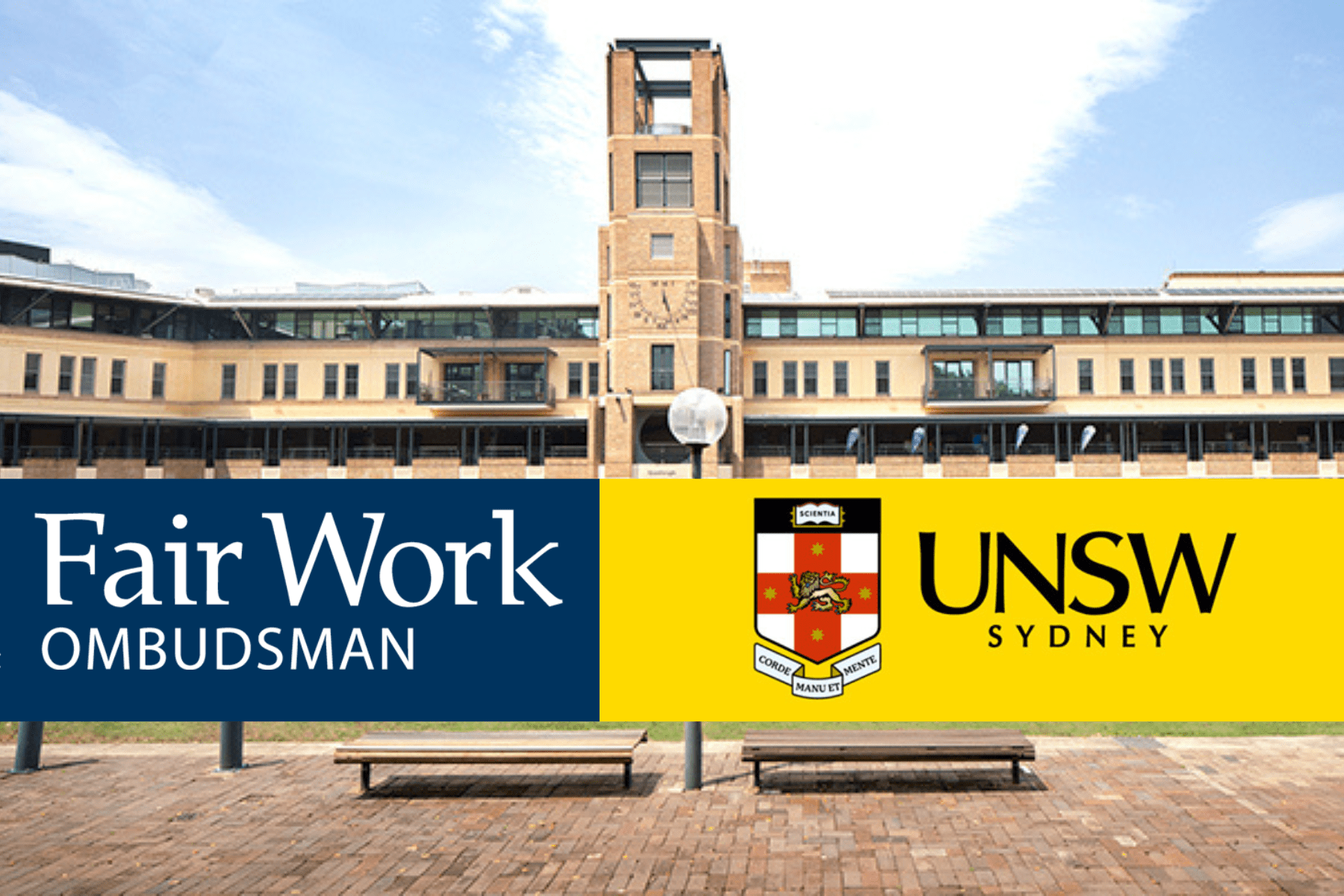The Fair Work Ombudsman has commenced legal proceedings action against the University of New South Wales (UNSW) for stealing staff wages.
The Ombudsman is accusing UNSW of making “serious contraventions” of the Fair Work Act, describing the University’s record-keeping as “so inadequate they made it difficult to identify whether employees had been underpaid.”
In breach of the Fair Work Act, UNSW is alleged to have failed to “make and keep records of hours, rates of pay and details of loadings and other entitlements owed to casual academic employees; make and keep records of hours, rates of pay and details of loadings and other entitlements owed to casual academic employees; and pay staff wages at least monthly for all hours worked.”
“It is alleged UNSW staff were often unlawfully paid certain parts of their entitlements several weeks or even months after they actually performed the work,” the Ombudsman, Anna Booth, said in a media release.
Proceedings have been commenced in the Federal Circuit and Family Court, with the Ombudsman’s case focussing on a sample of 66 allegedly affected casual academic staff in UNSW’s Business School on its Kensington campus.
The breaches allegedly occurred between 2017 and 2022, with Fair Work claiming the serious contraventions began in March 2018.
Fair Work is alleging that “UNSW committed some of the contraventions despite a number of staff in the Business School having previously been made aware that UNSW’s record-keeping practices were not adequate and it needed to take action to address non-compliance issues.” As such, it alleges that UNSW knowingly breached the Fair Work Act, thereby stealing the wages of some staff members.
If found liable, UNSW could be forced to pay to $66,600 per contravention of the Act, and up to $666,000 per serious contravention.
Booth said in a statement, “Record-keeping is a crucial part of compliance with workplace laws, and this litigation and the penalties we will seek are a warning to all employers to prioritise getting records right.
“It is completely unacceptable for an employer’s record-keeping practices to be so poor that they prevent us from assessing what hours its employees have worked and whether it has paid its employees their full lawful entitlements.”
The Fair Work Ombudsman started investigating UNSW in 2020 after the University contacted the FWO to self-report non-compliance with workplace laws. UNSW has already repaid staff $11 million in stolen wages, with its review of payment practices “ongoing”.
“UNSW Sydney has received a notice of legal proceedings against it by the Fair Work Ombudsman (FWO) relating to alleged breaches of record keeping obligations and frequency of payments to casual academic staff from 2017. UNSW is carefully reviewing the notice and will respond to the FWO through the appropriate legal forums,” the University said in a statement.
The National Tertiary Education Union released a report earlier this year, making a conservative estimate that over $107.8 million of staff wages have been stolen by Australian universities since 2020.
Booth said “We are committed to driving cultural change in the university sector. Universities need to place a much higher priority on investing in governance, human resources and payroll functions to ensure they comply with workplace laws.”
The Fair Work Ombudsman has twice launched proceedings against the University of Melbourne for wage theft. The University of Sydney admitted to stealing $12.75 million of staff wages in 2021.
The proceedings against UNSW will proceed to a directions hearing in the Federal Circuit Court in Sydney on 26 October.





